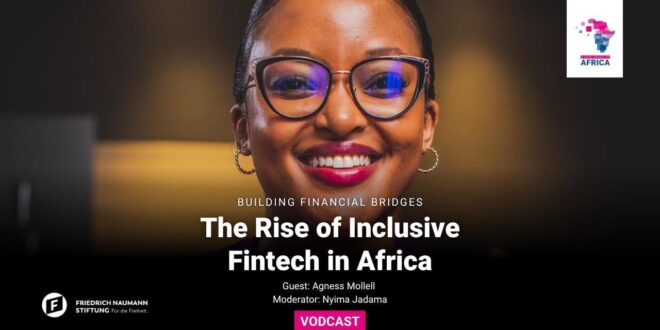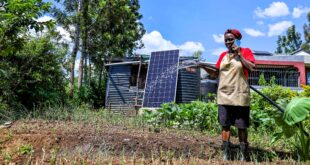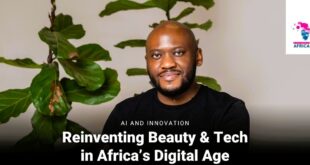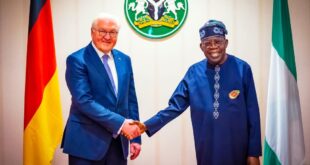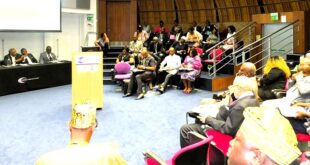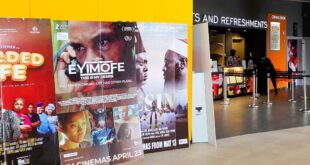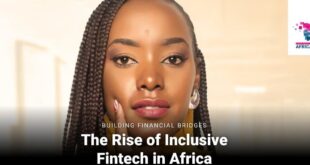The Friedrich Naumann Foundation for Freedom (FNF), in partnership with Nyima’s Bantaba Media Platform, is spotlighting changemakers who are transforming narratives and reshaping Africa’s future. As part of a series of interview publications (VOD & Podcast), Nyima’s Bantaba Media Platform features four innovators across East and Southern Africa who are not only talking about change but building it from the ground up and giving Africa a new image.
In this edition, Nyima Jadama spoke to one of the co-founders of Tanzania’s leading digital financial app targeting women — Agnes Molell, the COO and co-founder of the Mipango Mchezo App. She is one of the trailblazers behind this revolutionary digital platform that is transforming how women in Tanzania save, budget, and access financing.
Speaking on the Unfiltered Podcast, Molell discussed her financial career journey as one of the leading women entrepreneurs in Africa’s fintech space and her vision for a digital economy that truly works for everyone, particularly women and the youth.
Here are excerpts from the exclusive interview:
![]()
What inspired you to co-found Mipango, especially with a focus on women in Tanzania?
It started as a personal experience where my co-founder and I struggled to manage our day-to-day expenses. The Mipangoapp began as a budgeting, investment and savings tool. Over the past three years, we’ve enabled at least 23,000 people to track their expenses, manage budgets and save towards their financial goals.
Late last year, we realised we couldn’t monetise the previous model — people loved the app, but weren’t willing to pay. To make the solution investor-ready, we needed traction and revenue. Research showed users most valued the saving feature — the goal-oriented saving option. So, early this year, we decided to pivot towards a digital mchezo (merry-go-round) saving model for our customers.
Your aim is to reach one million women across East Africa within five years — an ambitious goal. What steps are you taking to achieve it?
It is ambitious, but achievable. Our strategy combines technology with community engagement. We’re digitising existing merry-go-round savings groups to remove risks of fund mismanagement and scale up to one million women.
We’re taking three main steps:
1. Building strong partnerships with women’s groups, NGOs and trusted community leaders — people who already hold influence and credibility within their communities.
2. Ensuring a user-friendly tool that accommodates both Swahili and English speakers, since Swahili is the dominant local language in Tanzania.
3. Using data intelligently, making it personal and responsive to each user’s goals and savings journey.
Why focus on women in particular, and what challenges do women in Tanzania face regarding financial accessibility and literacy?
Across East Africa, women form the backbone of the informal economy yet face barriers such as limited access to bank accounts, credit and loans due to lack of collateral or formal employment. By focusing on women, Mipango unlocks an entire layer of economic potential. When women are financially empowered, families and communities thrive — it creates a multiplier effect.
How does the Mipango app ensure its users — many of whom are first-time digital financial service users — feel safe and empowered?
We knew many users would be first-time digital finance users, so we made Mipango familiar. We digitised how women already save together, adding features like transparency, contribution tracking and instant notifications.
We prioritise data protection and trust, using simple Swahili language and avoiding financial jargon that often intimidates users. Empowerment comes from feeling in control — and we ensure users can see where their money goes at every step.
What role does financial literacy play in achieving gender equality in Tanzania, and how does your app support this?
Financial literacy is the gateway to gender equality. When women understand money management, credit and investment, they can make independent decisions that impact their families and communities. Our app embeds financial education through practical, bite-sized lessons, helping women build confidence step by step on their financial journey.
What unique technical challenges have you faced building a fintech solution for a primarily informal financial environment?
One major challenge is designing for an informal economy where trust is built face-to-face. When M-Pesa launched, people were sceptical about sending money via phone. Similarly, we’ve had to design technology that reflects social trust as much as financial function — using a lightweight interface that works with low bandwidth.
We’ve also had to be proactive about data protection in an evolving regulatory landscape. Like many African startups, we’ve faced hurdles with funding and scaling.
And how did you navigate those hurdles as a women-led business?
Access to funding can be challenging due to ecosystem bias. We bootstrapped for a long time, leaned on partnerships and grants, and focused on results over pitches. Building credibility through pilots, customer testimonials, and impact stories has helped us grow.
Resilience has been key. When one door closes, you build another. We’re now preparing to launch the next phase of our platform, with over 600 women currently saving through it. Our long-term goal is to transition into a digital bank within three years by partnering with financial institutions and acquiring a PSP licence.
What is one myth about Africa you’d like to debunk once and for all, and what does the new image of Africa mean to you?
Fear. Many Africans, especially Tanzanians, are hesitant to take risks. Language barriers also play a role — innovation spaces often operate in English, limiting participation. But I believe that a good product speaks for itself, regardless of language.
The future lies in solutions that bridge formal and informal economies. Fintech can create tailored tools — from digital savings to insurance — that empower women and youth. Africa’s next innovation wave will be inclusive, locally driven, and globally competitive.
As an African entrepreneur, I believe innovation is homegrown. We’re solving real problems with solutions that work in African contexts. By building technology that empowers communities, we’re proving that Africa is not a place of need, but a hub of innovation and resilience.
How can the global tech and business community better support African innovators like yourself?
Beyond funding, partnerships are crucial. During an accelerator in Vienna, we explored integrating AI into our app. Such collaborations help us solve challenges more effectively and build capacity to scale impact across Africa.
How are you empowering other women, and what advice would you give to a young African woman with an idea but unsure where to start?
I mentor young innovators through a youth-led innovation school. My advice is simple: start small and start now. Don’t wait for perfection — test your idea with real users, adapt quickly and seek mentors and communities that support you.
I started Mipango from my bedroom during the COVID-19 lockdown. It didn’t make sense at first, but surrounding myself with like-minded people helped me grow. You don’t have to have it all figured out — just begin.
Agnes Molell is the Co-Founder and Chief Operating Officer at Mipango. Trained as a lawyer, she has led the development of a technology-driven solution to address women’s financial challenges, championing inclusivity, empowerment, and sustainable growth. Her leadership has advanced financial literacy for thousands of women and positioned Mipango at the forefront of fintech innovation in Tanzania.
Her achievements include being named Leading Woman in Technology in Tanzania (2023), 2nd runner-up in the Konrad Adenauer Stiftung Young Entrepreneurs’ Competition, and winner of the African Startup Regional Award (2022). Fueled by a passion for bridging technology and social impact, Agnes continues to advocate for equitable financial systems and build transformative products that put women at the centre of economic opportunity.
About the Series
The New Image of Africa Campaign is more than just a series. It champions resilience, innovation and economic dynamism, while dismantling outdated stereotypes that portray Africa solely as the “aid continent”. By highlighting the work of young entrepreneurs, it reframes Africa as a continent reshaping its own future through innovation and creativity. This conversation is part of a three-part series of The Unfiltered Podcast, produced in partnership with the Friedrich Naumann Foundation for Freedom (FNF) and Nyima’s Bantaba Media Platform.
For more information about the project and the broadcast publication, visit:
https://www.freiheit.org/de/subsahara-afrika/focus/ein-neues-bild-von-afrika
![]()
 THE AFRICAN COURIER. Reporting Africa and its Diaspora! The African Courier is an international magazine published in Germany to report on Africa and the Diaspora African experience. The first issue of the bimonthly magazine appeared on the newsstands on 15 February 1998. The African Courier is a communication forum for European-African political, economic and cultural exchanges, and a voice for Africa in Europe.
THE AFRICAN COURIER. Reporting Africa and its Diaspora! The African Courier is an international magazine published in Germany to report on Africa and the Diaspora African experience. The first issue of the bimonthly magazine appeared on the newsstands on 15 February 1998. The African Courier is a communication forum for European-African political, economic and cultural exchanges, and a voice for Africa in Europe.

